India, known for its rigorous academic standards, is home to some of the most challenging examinations globally. As students navigate the educational landscape, these exams stand as formidable gatekeepers to prestigious institutions and career paths.
In this article, we delve into the intricacies of the top 10 toughest exams in India, shedding light on the challenges they pose and the opportunities they unlock.

IIT-JEE (Indian Institutes of Technology Joint Entrance Examination)
IIT-JEE, now known as JEE Advanced, is one of the most challenging and prestigious engineering entrance examinations in India. It is one of the top 10 toughest exams in India serving as the gateway for admission to the renowned Indian Institutes of Technology (IITs), which are among the top engineering institutions in the country.
Undoubtedly, the IIT-JEE exam secures the top spot as one of the toughest examinations in India. Conducted for admission to the prestigious Indian Institutes of Technology (IITs), this exam demands a profound understanding of physics, chemistry, and mathematics. The competition is fierce, making it a formidable challenge for aspiring engineers. – top 10 toughest exams in India.
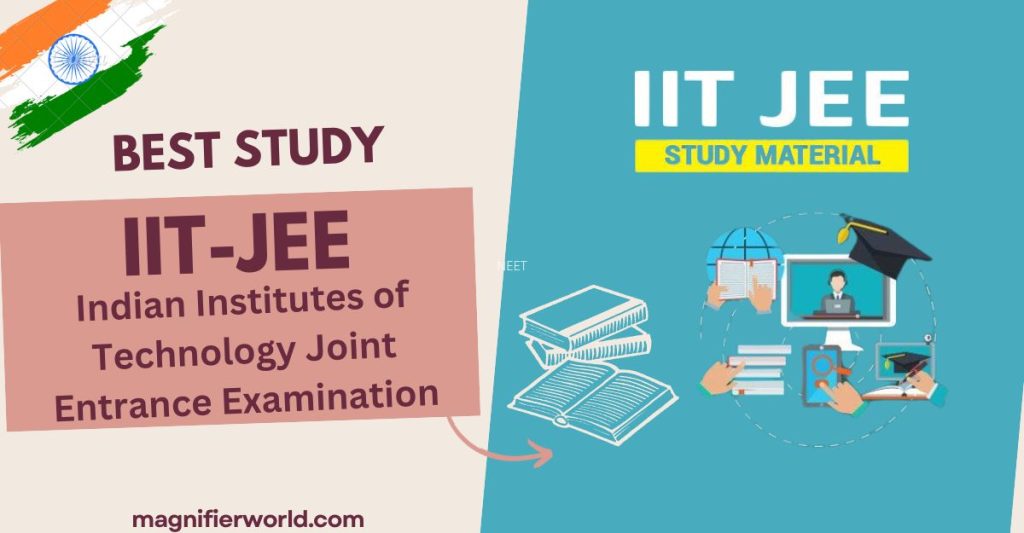
UPSC Civil Services Examination
The UPSC Civil Services Examination is a highly competitive and prestigious examination conducted by the Union Public Service Commission (UPSC) in India. It is top 10 toughest exams in India. Known for selecting candidates for various civil services and administrative positions in the Indian government.
The UPSC Civil Services Examination is a beacon for those aspiring to serve the nation. With its extensive syllabus covering diverse subjects like history, geography, polity, and current affairs, it assesses candidates for various prestigious services, including the Indian Administrative Service (IAS), Indian Foreign Service (IFS), and Indian Police Service (IPS).
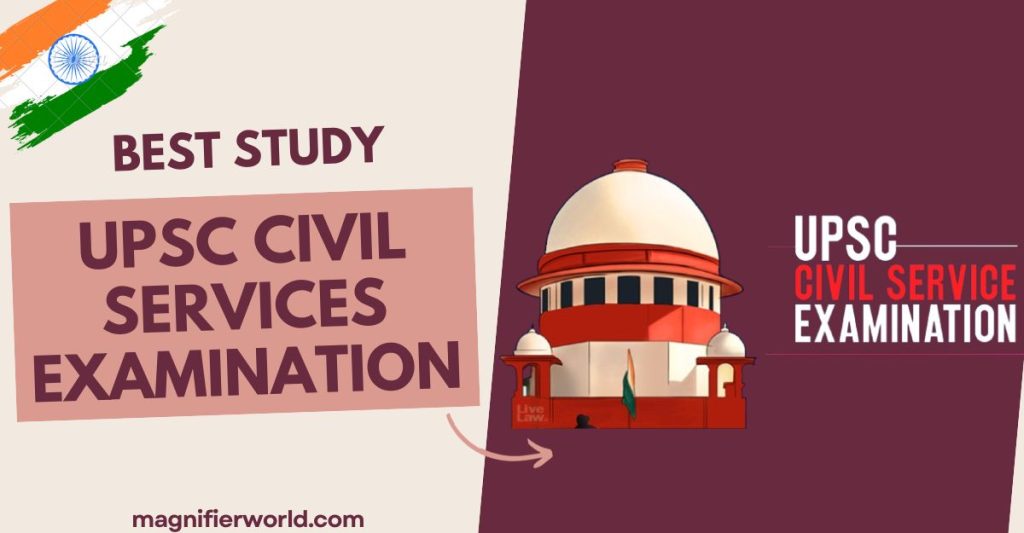
CAT (Common Admission Test)
CAT, or the Common Admission Test, is a computer-based management entrance examination. It is top 10 toughest exams in India conducted annually in India. It is a crucial gateway for admission to various postgraduate management programs, including MBA, offered by prestigious business schools across the country.
MBA aspirants face the CAT exam as a critical hurdle on their path to top business schools in India. The exam evaluates candidates in quantitative aptitude, data interpretation, verbal ability, and logical reasoning. Scoring well in CAT opens doors to premier management institutes like the Indian Institutes of Management (IIMs).
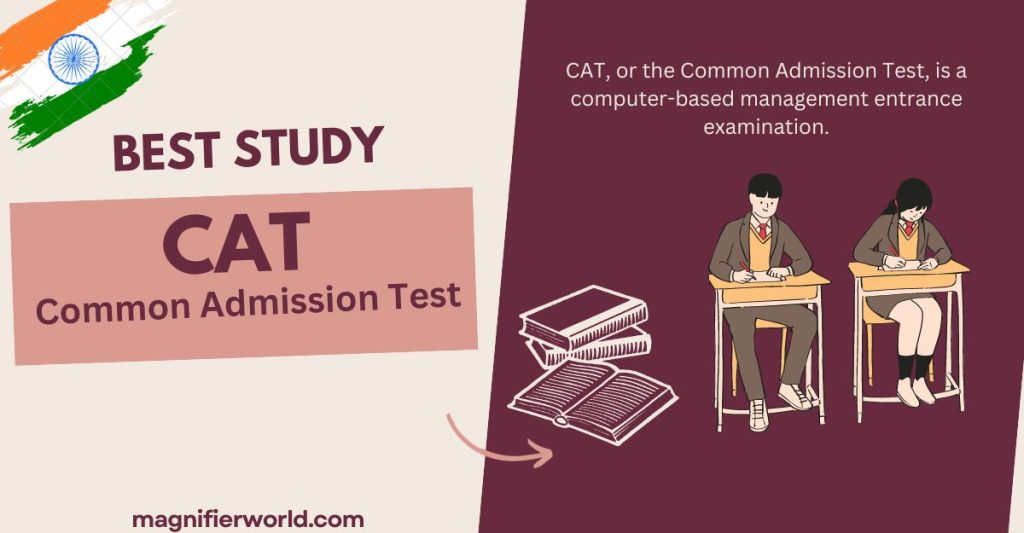
NEET (National Eligibility cum Entrance Test)
NEET, introduced in 2013, replaced multiple medical entrance exams conducted by different states and institutions. NEET – top 10 toughest exams in India unifying the admission process for medical and dental courses. The primary objective was to establish a single, transparent, and merit-based criterion for selecting candidates, eliminating the need for students to navigate a complex web of entrance exams. This move aimed to bring about standardization and curb malpractices associated with multiple entrance tests.
Medical aspirants contend with the NEET exam for admission to undergraduate and postgraduate medical courses in India. Covering physics, chemistry, and biology, NEET assesses knowledge and aptitude for the medical profession, making it one of the most challenging and top 10 toughest exams in India.
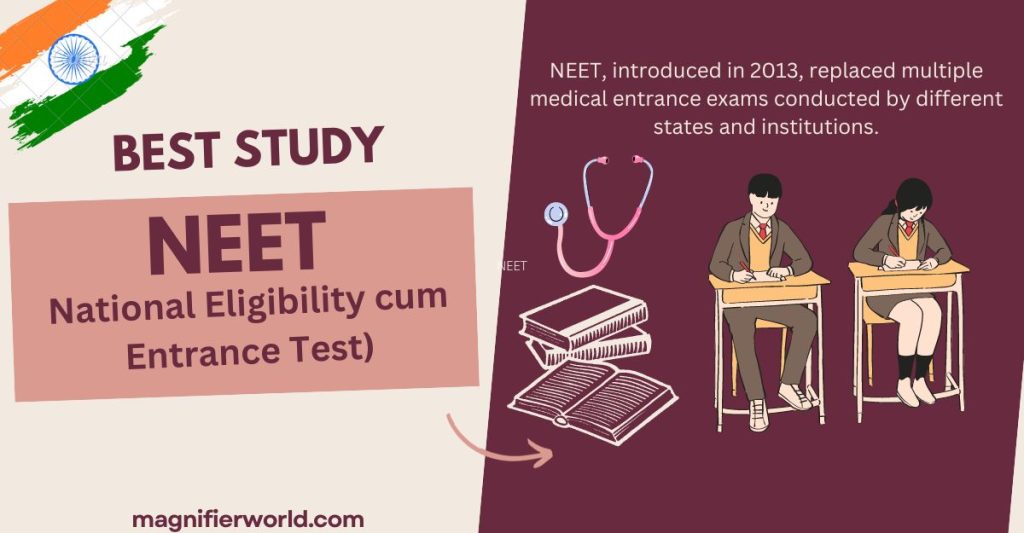
GATE (Graduate Aptitude Test in Engineering)
The Graduate Aptitude Test in Engineering (GATE) is a nationally renowned examination that holds significant importance for engineering and technology aspirants in India. Launched in 1984, GATE serves as a benchmark for assessing the comprehensive understanding and proficiency of candidates. GATE is top 10 toughest exams in India varying in engineering and science subjects. In this exploration, we delve into the multifaceted dimensions of GATE, examining its purpose, structure, and the impact it has on the academic and professional pursuits of countless individuals.
For those pursuing postgraduate engineering courses or seeking employment in public sector undertakings (PSUs), the GATE exam is the gateway. Covering a vast array of engineering subjects, GATE demands in-depth knowledge and problem-solving skills.
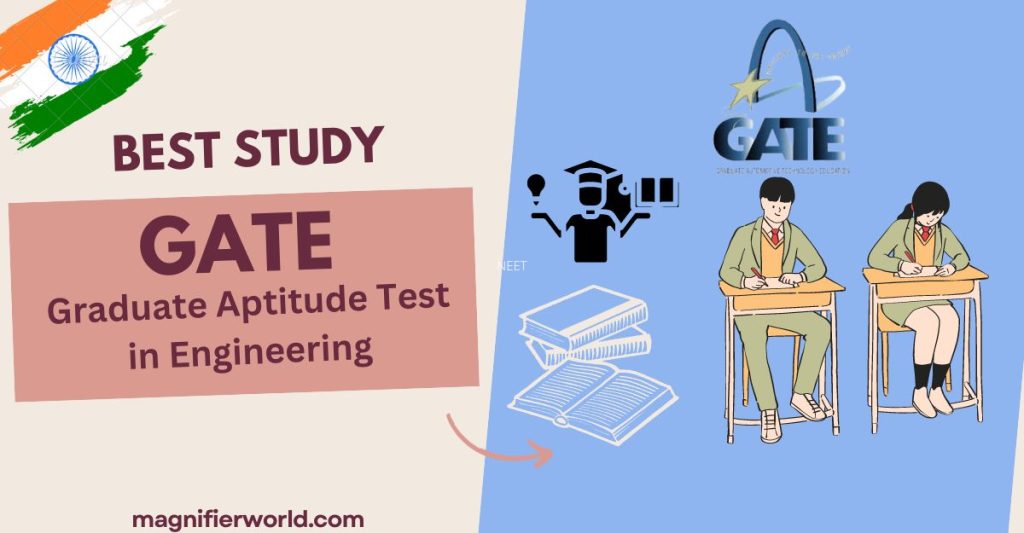
CA (Chartered Accountancy) Final Examination
The Chartered Accountancy (CA) Final Examination is the pinnacle of the rigorous and comprehensive assessment process that individuals aspiring to become Chartered Accountants in India undergo. Administered by the Institute of Chartered Accountants of India (ICAI), the CA Final Examination is the last and most challenging stage of the CA course.
In this exploration, we delve into the significance of the CA Final Examination, its structure, and the transformative journey it signifies for those on the path to becoming Chartered Accountants.
The CA Final Examination is the last leg of the arduous journey to becoming a Chartered Accountant. With its comprehensive coverage of accounting, taxation, auditing, and financial management, this exam assesses candidates’ expertise in financial matters, making it one of the top 10 toughest exams in India.

CLAT (Common Law Admission Test)
The Common Law Admission Test (CLAT) is a highly esteemed and competitive examination in India, serving as the gateway for admission to undergraduate and postgraduate law programs at renowned National Law Universities (NLUs) and other participating law schools. This standardized test, introduced in 2008, assesses the aptitude and proficiency of candidates in various areas such as English, mathematics, logical reasoning, legal aptitude, and general knowledge.
In this exploration, we delve into the top 10 toughest exams in India – CLAT, its structure, and the impact it has on shaping the legal education landscape in the country.
Law aspirants face the CLAT exam, a challenging test for admission to prestigious law universities in India. Covering areas like legal aptitude, general knowledge, and logical reasoning, CLAT sifts through the best minds aspiring to join the legal profession.

JAM (Joint Admission Test for M.Sc.)
The Joint Admission Test for M.Sc. (JAM) is a significant examination in India designed to assess the academic prowess and eligibility of candidates seeking admission to various M.Sc. (Master of Science)and other postgraduate programs in prestigious institutions across the country.
Initiated in 2004, JAM is conducted jointly by the Indian Institutes of Technology (IITs) and the Indian Institute of Science (IISc). These top 10 toughest exams in India evaluate candidates in multiple disciplines, encompassing both natural and mathematical sciences. In this exploration, we delve into the significance of JAM, its structure, and its impact on the academic landscape.
For those inclined towards scientific research, the JAM exam is a significant hurdle. Conducted for admission to M.Sc. programs at prestigious institutes, JAM assesses candidates in subjects like physics, chemistry, and mathematics, demanding a high level of analytical and conceptual understanding.
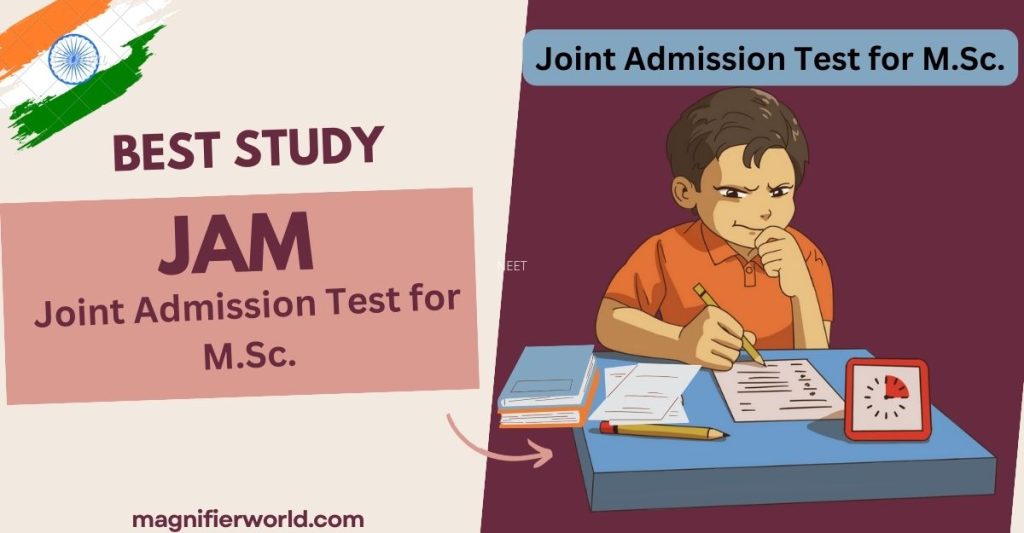
NDA (National Defence Academy) Entrance Exam
Aspiring to serve in the armed forces? The NDA Entrance Exam is your gateway. This comprehensive top 10 toughest exams in India – NDA exam evaluates candidates on mathematics, general ability, and English, ensuring that future officers possess the skills and knowledge necessary for leadership roles in the military.
The NDA entrance exam consists of a written examination followed by a rigorous interview process. The written exam comprises two papers: Mathematics and General Ability Test (GAT). The Mathematics paper evaluates a candidate’s mathematical aptitude, while the GAT assesses their proficiency in English, general knowledge, and reasoning.
Candidates who clear the written examination are then shortlisted for the interview process conducted by the Services Selection Board (SSB). The SSB interview assesses the candidate’s personality, leadership qualities, and suitability for a career in the armed forces. It includes various tests such as the Officer Intelligence Rating (OIR), Psychological Tests, Group Testing Officer (GTO) tasks, and an Interview

BITSAT (Birla Institute of Technology and Science Admission Test)
The BITSAT exam is a formidable challenge for those aspiring to join the Birla Institute of Technology and Science. Covering physics, chemistry, mathematics, and logical reasoning, BITSAT demands excellence in academics and problem-solving skills. BITSAT is one of the top 10 toughest exams in India.
The Birla Institute of Technology and Science Admission Test (BITSAT) is a prominent and competitive examination in India that serves as the gateway for admission to the Birla Institute of Technology and Science (BITS). BITS, renowned for its engineering and science programs, conducts BITSAT annually for admission to its integrated first-degree programs, including B.E. (Hons.), and B.Pharm. (Hons.), and M.Sc. (Hons.). In this exploration, we delve into the top 10 toughest exams in India – the significance of BITSAT, its structure, and the impact it has on the academic landscape.
BITSAT has a significant impact on the academic landscape by attracting some of the brightest minds in the country to BITS campuses. The institute is known for its multidisciplinary approach, providing students with the flexibility to explore diverse fields within science and technology.
The high academic standards and research-oriented environment at BITS contribute to the development of well-rounded individuals capable of making significant contributions in their chosen fields. BITSAT, through its rigorous examination process, helps in identifying and nurturing talent in science and engineering.

Also Related post:-
- What is the Future of Technology in Education? A complete guide
- Making Every Minute Count: Morning-to-Night Routine for Students
- Explore These articles
Conclusion
These exams, with their diverse subjects and rigorous evaluation processes, represent the pinnacle of academic and professional challenges in India. As students and professionals strive to overcome these hurdles, they not only unlock doors to prestigious institutions but also demonstrate a level of dedication and expertise that sets them apart.
In conclusion, the top 10 toughest exams in India discussed, whether for professional courses, higher education, or defence services, play pivotal roles in shaping the academic and professional trajectories of individuals in India. These examinations serve as gateways to prestigious institutions and careers, fostering excellence, meritocracy, and specialization in various fields.
Examinations like the “Top 10 Toughest Exams in India,” and others highlight the significance of recognizing and honoring exceptional individuals, institutions, and challenges that shape various sectors in the country.
Whether it’s pursuing business coaching, navigating the challenging landscape of competitive exams, or embarking on careers in law, science, or defence, these entrance exams are crucial milestones. They not only assess academic knowledge but also cultivate essential skills, values, and qualities required for success in diverse fields.
As India continues to evolve, these entrance examinations serve as pillars in the educational and professional foundation of the nation, contributing to its growth, innovation, and the development of skilled and responsible individuals ready to make meaningful contributions to society.
FAQS related to Top 10 Toughest Exams in India
The toughest exams in India were selected based on the depth and breadth of their syllabi, competition levels, and the significance of the institutions or professions they grant access to.
The difficulty level is often assessed based on the complexity of the syllabus, the competition, and the overall success rate of candidates.
Yes, most of these exams are conducted annually, and candidates need to prepare for them within a specific timeframe.
Yes, candidates can apply for multiple tough exams, but careful consideration should be given to the overlapping exam schedules and preparation requirements.
Age restrictions vary for different exams. It is essential to check the specific eligibility criteria for each exam.
Managing time effectively, creating a structured study plan, and seeking guidance from experienced mentors are key strategies for preparing for multiple tough exams.
While coaching classes can be beneficial, many candidates have succeeded through self-study and online resources. The choice depends on individual preferences and learning styles.
Yes, many of these exams allow candidates to retake them in subsequent years.
Some exams, like the GRE and GMAT, are open to international students, while others may have specific eligibility criteria for non-Indian candidates.
CAT is specifically for admission to management programs, while GATE is for postgraduate engineering admissions and PSU recruitment.
Many exams, such as CAT and BITSAT, have moved to computer-based testing. However, the format varies, and candidates should check the specific exam guidelines.
Success in these exams opens doors to prestigious institutions and professions, significantly enhancing career prospects.
Yes, many exams offer age relaxations for candidates belonging to reserved categories. The extent of relaxation varies.
Exams like the GRE and GMAT are widely accepted by international universities for admission to various programs.
Some institutions offer scholarships based on exam performance. Candidates should check with the respective exam authorities or institutions.
By rigorously assessing candidates, these exams ensure that individuals entering professions or institutions have the knowledge and skills necessary for success, contributing to the nation’s workforce.
Yes, exam authorities may update the syllabus periodically. Candidates must stay updated with the latest exam patterns and syllabi.
Effective stress management involves maintaining a healthy study-life balance, adopting relaxation techniques, and seeking support from friends, family, or mentors.





